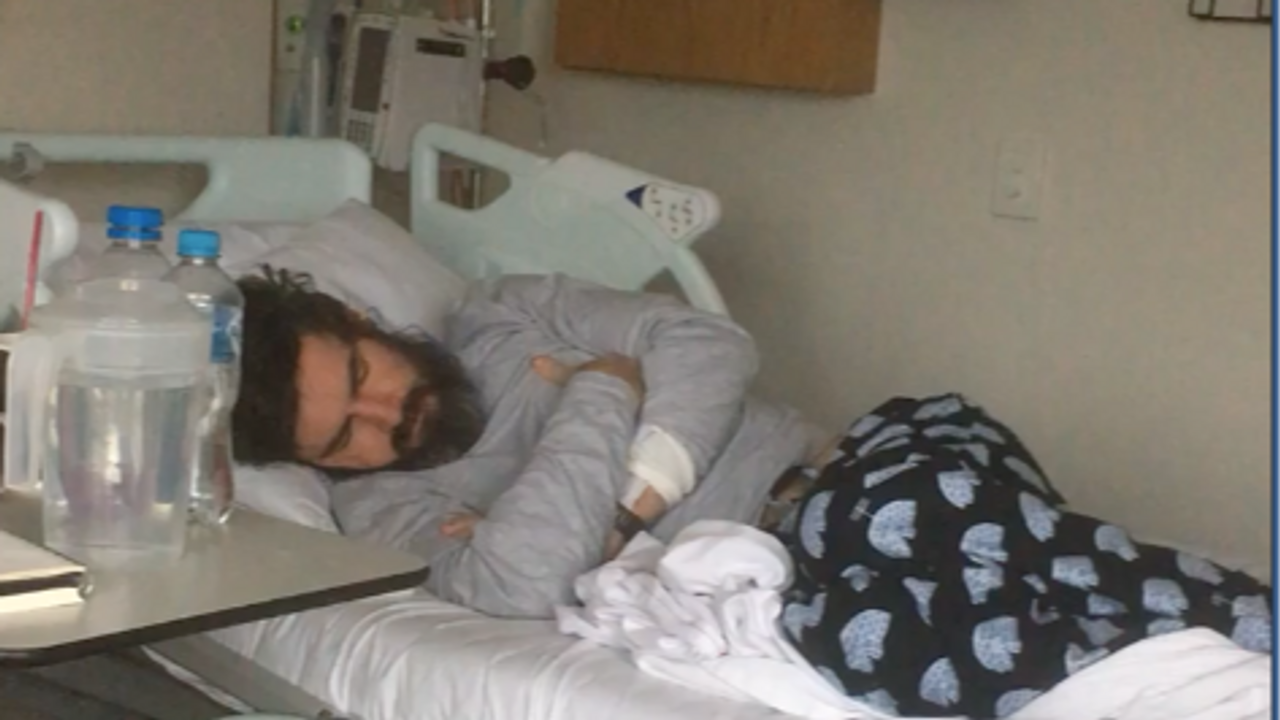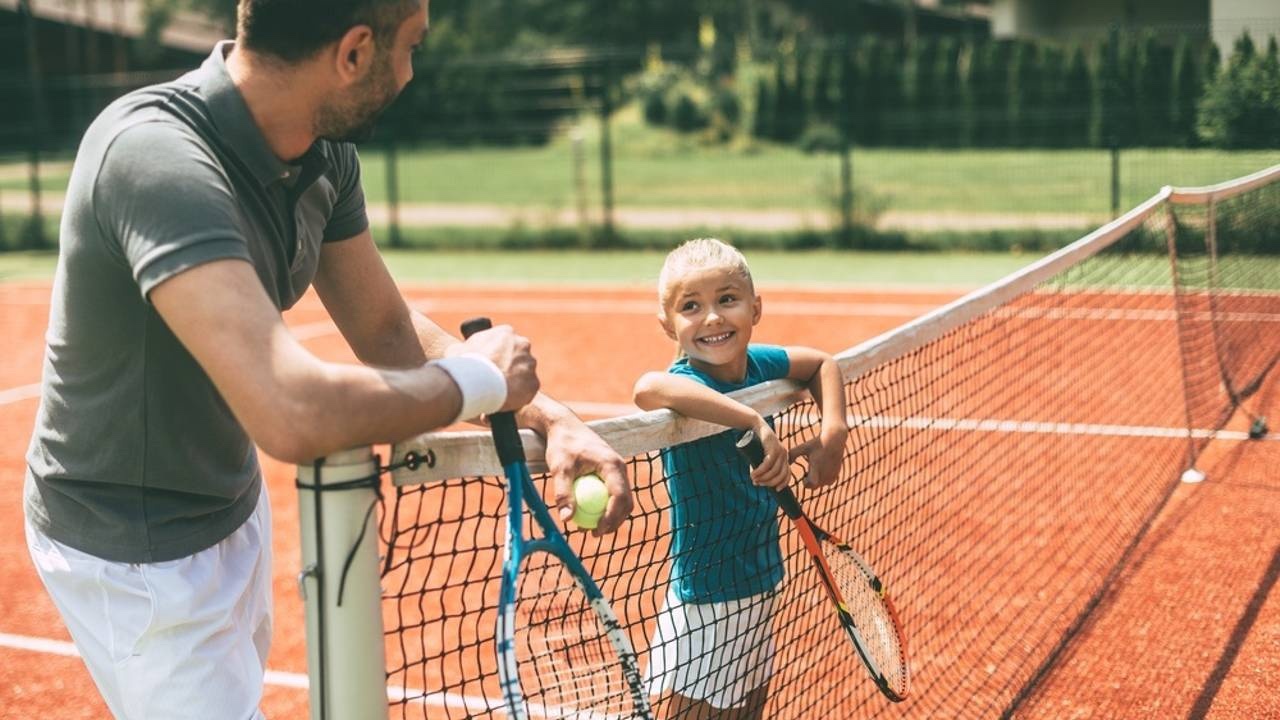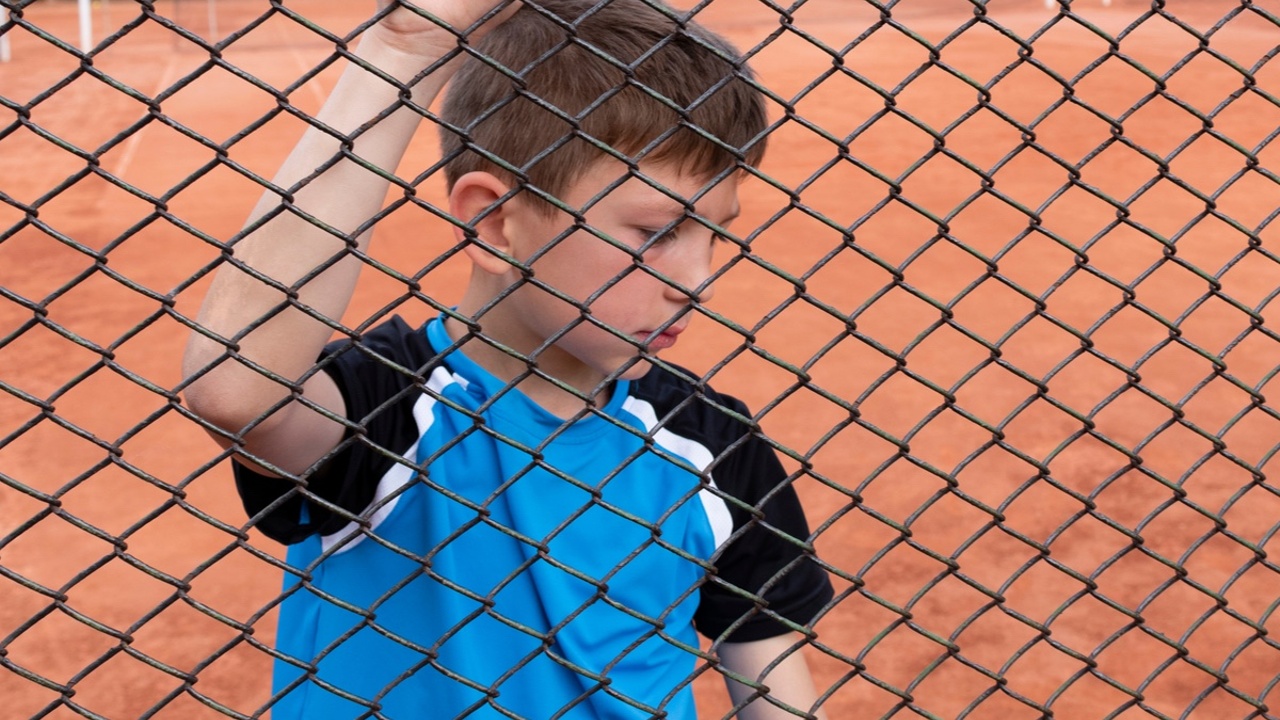WELCOME TO OUR FREE ARTICLES, VIDEOS, AND RESOURCES
Would you like us to send our best free tips, tools, and special offers straight to your inbox?
How Much Control Do Players Really Have Over How Much Pressure They Feel?
Often when coaches and parents explain to me the challenges that a particular player faces regarding mental toughness they say something like: "He/she puts too much pressure on him/herself".
But how much control do players really have over how much pressure they feel?
In my opinion, usually a lot less in the reality of competition than ideally we would hope that they have.
This is because the pressure a player feels is largely based on the situation they are facing.
Just look at Novak Djokovic's experience of pressure during the US Open.
For example, players tend to feel more pressure as they commit more of their lives to becoming the best player they can be...
And players naturally feel a lot of pressure before playing an opponent who they expect to beat, but who they fear it is possible they could lose to...
And this pressure can be magnified if the player is younger than them, or if they are very close socially to their opponent...
And players feel more pressure when...
How Tennis Helped Save My Life...

About 6 years ago my wife Cathy and I were out for our regular run.
After running at the same pace for a little while, being an avid and healthy runner at the time training for marathons, I would usually go off ahead and see if I could catch her on our return to our starting point.
But this day was different….As we ran I realized I was struggling to keep up with her.
We thought this was pretty funny at the time but over the next few days I felt increasingly weak, and on Friday the 13th of November, 2015, my life changed for the worse in a way that I could never have imagined.
I woke up to find that I couldn’t walk across the room…
Long story short and over the next 3 years I found myself in a brutal battle that is simply impossible to comprehend for those that haven’t experienced something similar.
Stanford researchers who have studied about 60 patients with similar symptoms to me have hypothesized that the illness is what they call the ‘Metabolic Trap’. A condition whe...
Djokovic vs Medvedev: Some Thoughts on Medvedev's Mental Fold

Novak Djokovic is still the undisputed king of the Australian Open and with each new Slam victory the likelihood that he will end his career as the all time male grand slam leader becomes more likely.
And for Daniil Medvedev what seemed like a possible changing of the guard yesterday now appears like more of the same old story- the young guns still have quite a ways to go.
In Medvedev's case, the capacity to cope with the greatest challenge took a significant hit as he mentally folded from about the middle of the match.
Here are my 3 main mental reflections from the match...
Nadal vs Tsitsipas and Why We SHOULDN'T Aim for the Zone...
With has comeback for the ages Tsitsipas became only the 2nd player to come back from 2 sets down to win against Nadal at a Slam...
A truly incredible effort!
First to hang on when in terrible trouble against a surging Nadal...And then himself achieving a mind boggling level throughout the 2nd half of the match...
Having listened to Tsitsipas's post-match press conference, I have 2 important reflections.
You can hear my thoughts here...
My Reflections After Naomi Osaka's French Open Withdrawal...

With Naomi Osaka's recent withdrawal from the French Open, I've been reflecting more than usual on the development on mental health through tennis participation.
With all of our mental health experience being a result of a complex interplay between our in born traits, developmental experiences, and current circumstances, I would like to focus on one element of these important contributors to mental health outcomes of tennis players.
And that is the ability of parents to successfully and consistently communicate what is called 'unconditional positive regard', throughout children's development in tennis.
Having been a sport psychologist for 15 years, I have supported hundreds of players during periods of mental health struggles.
And while any player can develop serious mental health issues (reliable research suggests 50% of us experience suicidal thoughts at some point during our lives), due to a perfect storm of factors associated with tennis parenting that make parent-child...
The Most Common Obstacle to Successful Tennis Parenting Communications

For most parents, watching children compete in tennis is an extremely emotional experience.
But while all parents can experience significant challenges, some face increased vulnerabilities.
The Biggest Obstacle...
Susceptibility to tennis parenting challenges above and beyond the normal emotional challenges is most linked to a parent’s own learning history in performance domains.
Just like parents powerfully influence their own children’s development through tennis, every parent has a lifetime of experiences that have invisibly contributed to their own development.
These past experiences shape how parents perceive their child’s tennis.
For Example...
If a parent’s own parents communicated disapproval or conditional love to him in performance domains when he was a child, the sense of disapproval that he felt then will likely later be evoked when he watches his own child perform poorly in tennis.
Through this process (sometimes called transference), this parent will
...What Parents Can Learn From Federer's Mental Attributes...
What an incredibly sad day for tennis.
How good one last slam run would have been. But alas its not to be…
With Roger Federer’s retirement announcement it got me reflecting on his greatest career mental traits.
And from there I actually found myself thinking about what tennis parents can learn from this…As parents of course are the greatest influences on whether we might be blessed enough to see another Federer like person and player in the future…
First, I believe he has 3 mental traits that stand out:
1.) Resilience
If 2 statistics characterise Federer's resilience, it is these…
i.) He came back from 2 sets down 10 times, and all-time record and more than Rafa and Novak combined.
ii.) And he never retired from a match that he started. When we consider the amount of niggling injuries he played with, and that Rafa and Novak have retired from matches about a combined 20 times, this is an amazing achievement.
2.) Performing his Best Under Pressure
Federer was clutch...b...
The 4 Crucial Elements to Successfully Supporting Tennis Parents...

A great passion of mine throughout my career as a sport psychologist has been supporting parents on the tennis parenting journey.
I quickly formed the opinion early in my career that tennis parents in the organisations that I worked were having more influence on player mental toughness outcomes than coaches.
I also learned that National Organisations, the bodies that should be prioritised supporting parents throughout the tennis parenting journey, do a terrible job in this area.
This contributes to i.) consistent parent and coach overwhelm and helplessness, and ii.) poor competitive habits and common issues with well-being for players.
And while coaches generally do their best to support tennis parents in this challenging role, we typically miss some vital elements in successfully assisting parents...
Why do efforts to support parents often fail?
The reason that efforts to support tennis parents often aren't adequate is that those looking to help simply give parents guide...
Set Expectations LOWER to Improve Mental Toughness...
Invest 5min of your day right now in watching this video if you want to become a better coach, tennis parent, or player....
Anthony
3 Important Lessons We Can Learn From Thiem 'Getting Tight'
The last couple of months have been a little bit of a whirlwind for me having my first child…Kudos to all or you who are also parents- it didn't look as challenging as I'm finding it from the sidelines :-)
But with the fog clearing I had the chance to watch some of the ATP Finals during the week which was great J
And one moment stood out from a mental perspective…
When Dominic Thiem was trying to finish Novak Djokovic in the 2nd set tiebreak despite being one of the most relentlessly aggressive players on the tour, he didn’t commit to this gamestyle in that moment. Instead he played more conservatively and even defensively on a few points.
This cost him the set after having 5 match points….
He did amazingly well, however, in recommitting to aggression when down in the 3rd set breaker, to reel off an incredible run of points to get the win.
When asked whether his win was more of a mental battle than a physical battle he replied,
“It was for sure a mental battle, I got s...
